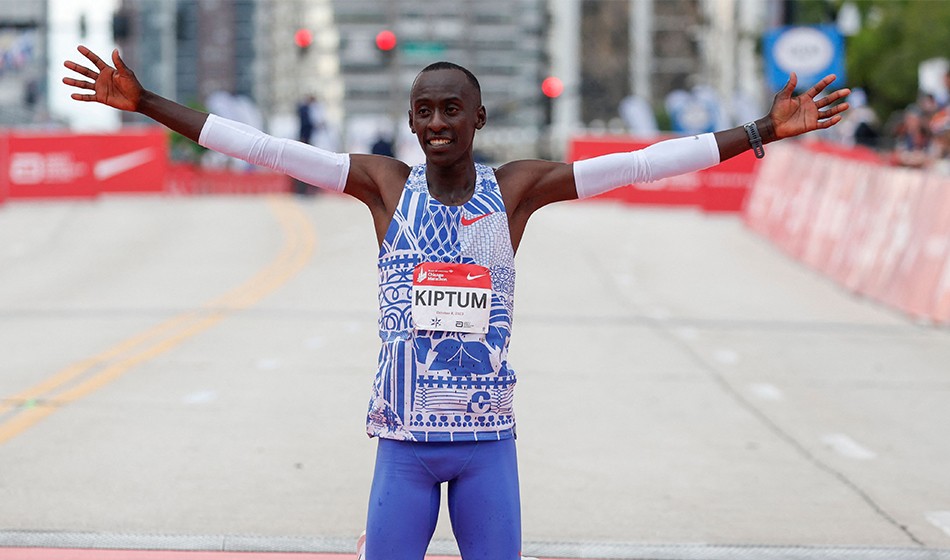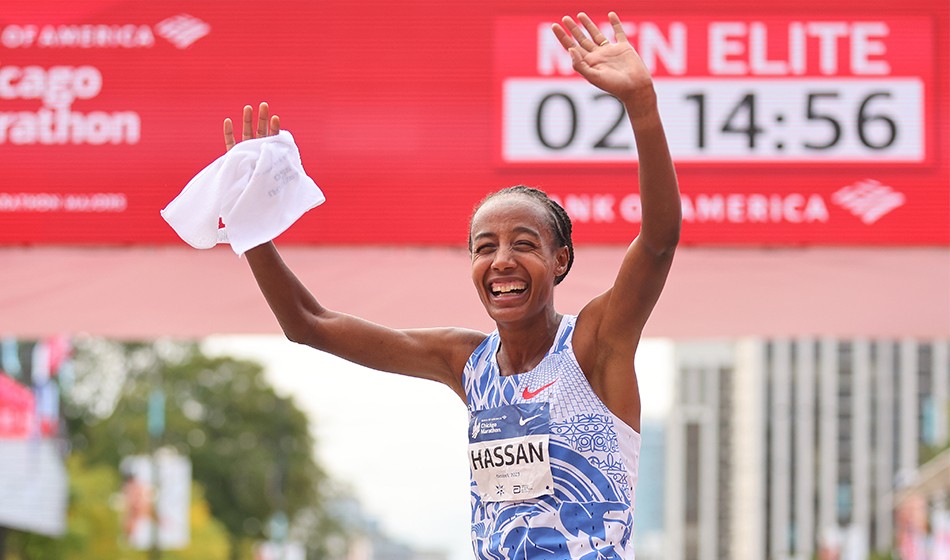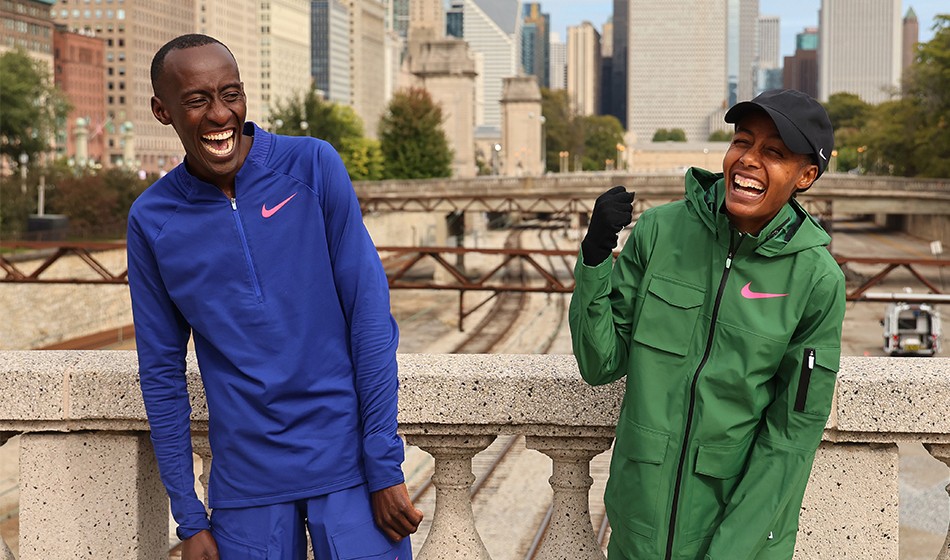No, 2:00:35 isn't a typo.
Even with the dominance of Eliud Kipchoge over the last decade, the prospect of a sub-2:01 marathon seemed scarcely believable.
The double Olympic marathon champion had moved the world record on from Dennis Kimetto's 2:02:57 in 2014 to the 2:01:09 he recorded in Berlin last season.
A drop of one minute and 48 seconds over eight years.
If that progression felt like a quantum leap, then Kelvin Kiptum's world record of 2:00:35 at the Chicago Marathon on Sunday (October 8) equates to travelling at light speed.
There had been an expectation that Kiptum could get close to Kipchoge's 2:01:09.
After all, the 23-year-old's previous two marathons got the world's attention. He became the fastest male marathon debutant in history after victory in Valencia back in December 2022.

Then, at the this year's London Marathon, he set a course record of 2:01:25 and narrowly missed out on Kipchoge's mark.
To get the world record, there was always a sense of needing to see it to believe it.
It's not just that 2:01:09 is an insanely good time but that Kipchoge, who is aiming to be the first person ever to claim three Olympic marathon gold medals in Paris next year, was the one who set it.
The manner of how Kiptum demolished the standard, bettering the time by 36 seconds, proves that nothing is impossible and everything is on the table.
Like in London, Kiptum produced negative splits (60:48 and 59:47) to triumph on the streets of Chicago. However, that didn't mean he started off slowly. The 10km mark was reached in a blistering 28:42, meaning he was already on world record pace (2:01:05). By the halfway mark, only compatriot Daniel Mateiko could stay with him.

It was never likely however that Mateiko, who broke the UK and Irish all-comers' half-marathon record back in August with 58:36, would stay with Kiptum in the latter stages.
The telling point of the race was when Kiptum produced a phenomenal 5km split of 13:51 between 30-35km. Mateiko fell away and subsequently dropped out of the race.
Kiptum powered on, though, and as he approached the finish line he blew a kiss to the crowd, waved his hands aloft and became overwhelmed with emotion. Even he couldn't quite believe the magnitude of what he'd just done.
Not only did he run 2:00:35 but the Kenyan took apart a world class field and beat last year's Chicago winner Benson Kipruto by three minutes and 27 seconds.
Such a victory has now firmly altered perspectives when it comes to the possibility of running a sub-two hour marathon.
Four years ago, Kipchoge clocked 1:59:40 over 26.2 miles during the INEOS 1:59 Challenge but that doesn't count as an official world record as he had 42 rotating pacemakers, his coaches handed him water throughout the run and the race wasn't set up as a competition.

No human in history has run 26.2 miles in under two hours on a record-eligible course. Now, though, the feat looks entirely possible. If Kiptum raced in Berlin – the course which has hosted more world records than any other (13) – then who knows?
With the Kenyan wearing Nike Dev 163 prototype shoes, Kiptum's victory will also reignite the debate on how much a difference shoe technology makes, just a fortnight after Tigst Assefa wore a pair of the £400 Adizero Adios Pro Evo 1 on her way to a women's world record of 2:11:53.
In the early stages of Chicago, Sifan Hassan had the potential to give that mark a scare but had to 'settle' for a European record of 2:13:44 in just her second ever marathon.

If Hassan's impressive debut win in London was extraordinary – given she stopped twice and dodged a a bike in dramatic style – then backing it up in Chicago was something else.
If it wasn't for Assefa's run at the Berlin Marathon, then the Dutch athlete would be the world record-holder over 26.2 miles. This performance also comes two months after claiming a world 5000m silver and 1500m bronze at the World Championships in Budapest.
Hassan has perhaps the greatest range of any female athlete in history. She has run 1:56.81 for 800m and is now the European record-holder over 1500m, 3000m, 5000m, 10,000m, 5km, half-marathon and marathon.
The point of doing the marathon was to test the waters. This was the unknown. In London, Hassan saw off Alemu Megertu and Peres Jepchirchir by less than six seconds and gave the impression she didn't quite know how she had managed to win.

In Chicago, her persona was different. The innocent exuberance was still evident but you could tell that she had learned from London and it wasn't a shock to see her trounce last year's Chicago champion Ruth Chepngetich by one minute and 53 seconds.
Both Kiptum and Hassan might be relatively new to the marathon but the they are beginning to re-define what's possible in the distance.
Is this the new normal? Certainly, the event is moving on. Rapidly. Six out of the fastest ten men's times in history have been recorded in the past two years. That number stands at eight in the women's field.
We're in a new era and it doesn't look likely it's stopping anytime soon.
» Special Offer: Subscribe today and get your first three months for just £24.99 here
